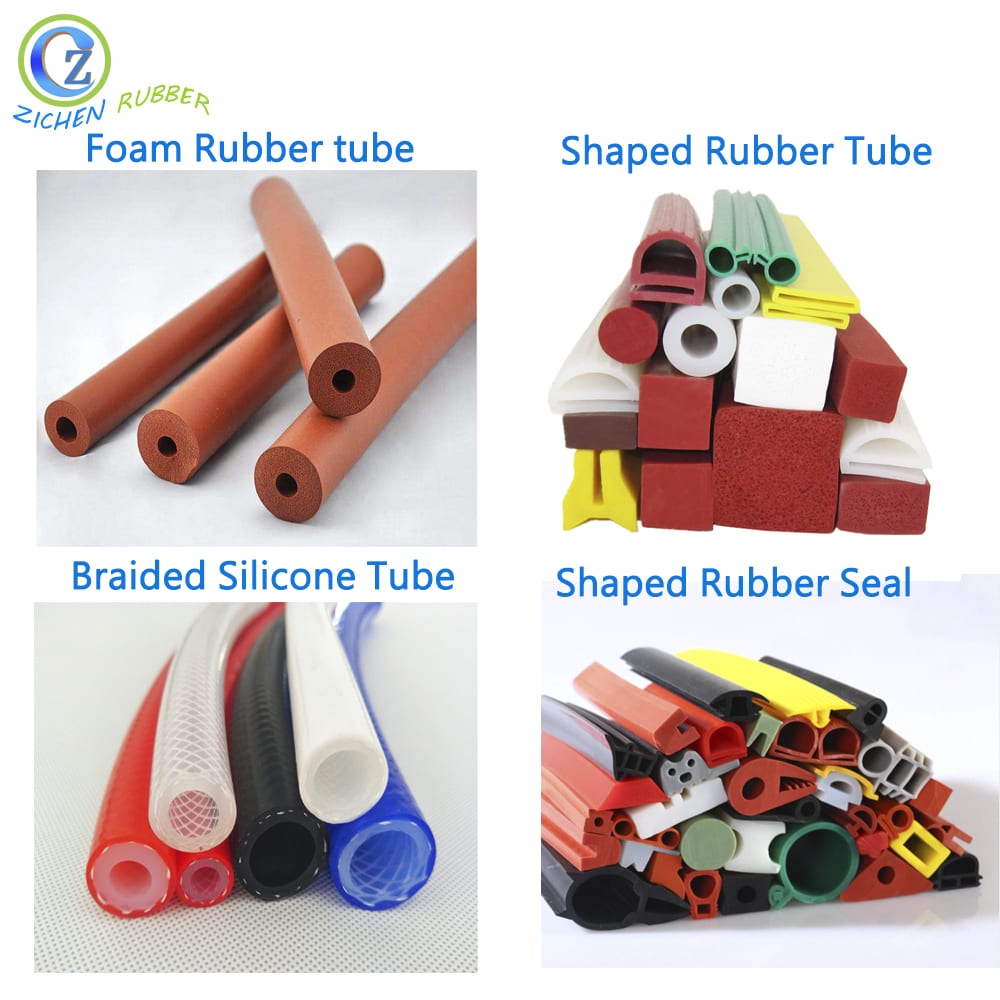
Silicone rubber is the most common synthetic polymer on the market today. It is a durable, resilient, and versatile material with applications ranging from silicone o-rings, gaskets, numerous sealants, and cable insulation to bottle nipples, tires, conveyor belts, and implants. Products and components manufactured with silicone rubber are used in such industrial sectors as aerospace, automotive, electrical and electronics, building and construction, healthcare and medical, food, textile, footwear, and many other industries.
Silicone is a synthetic elastomer—a rubber-like polymer that displays elastic properties—that is easily formulated and manufactured. It is an odorless, non-toxic material that makes it a trusted sealant for numerous consumer products and medical devices. It can be molded and cured to varying degrees of hardness, colors, density, shapes and forms that offer more than exceptional material choices, but countless design and innovative solutions for engineers and manufacturers.
What are the Properties of Silicone Rubber?
The market for silicone rubber is extensive. The material is widely used in many manufacturing and production processes due in large part to its many unique properties that serve diverse applications. Various formulations of silicone rubber compounds can display characteristics of both inorganic and organic materials. Such characteristics hold a number of advantages that provide a unique combination of chemical and mechanical properties for manufacturers.
Properties of silicone rubber include:
Thermal Stability
Silicone rubber has excellent thermal stability. In the heat or cold, the material can perform in extreme temperatures, with a range from minus 100°F to plus 500°F. This includes regular usage at 300°F without any change in its properties, and work temperatures approaching 400°F that last for approximately 10,000 hours or more. Some silicone rubbers can even withstand heat of over 600°F for short periods. Its high-temperature performance is superior to other common synthetic rubbers such as nitrile or chloroprene.
Optimal Sealing Material
Because of its excellent thermal and chemical stability, silicone rubber retains its high elasticity and compressibility in the most extreme environments. These properties make silicone rubber the optimum sealing material of choice because, in general, it is resistant to moisture, chemicals, temperature, and exposure. For example, silicone o-rings and gaskets not only provide outstanding oil resistance, but also resistance to acids, bases, gases, chemicals, vapors, and even fungus. As a sealant, silicone rubber is impervious to moisture and, under ordinary pressure, steam. It can withstand immersion in cold, warm, or boiling water for extended periods of time with approximately 1% water absorption—without affecting its mechanical strength or electrical properties.
Electrical Properties
Silicone rubber has outstanding electrical properties. As a basic insulating material, silicone rubber is widely used as insulation material for transmission lines of high voltage direct current. It is flame retardant with low smoke emission. Combined with its lack of conductivity, silicone rubber is extensively used in wire and cable insulation for consumer, industrial, and commercial goods.
FDA-Grade Quality
Silicone rubber has inert properties, i.e., it is tasteless, odorless and non-toxic, that lends itself well to the manufacture of FDA compliant materials with food and medical applications. Medical- and food-grade silicone rubber meets the strict standards that the FDA has in place for all materials and components used for medical or consumable products. FDA-grade silicone rubber is used as a component in products such as tubing, syringes and other medical devices, insulation, lubricants, cooking utensils, adhesives, sealants, and much more.
Other Properties
Silicone rubber offers a degree of tensile strength, flexibility, elongation, and compression set that surpasses conventional rubbers. It offers noise reduction and vibration dampening. Its exceptional weather resistance allows for prolonged exposure to wind, rain and UV rays without altering its physical properties.
As one of the most commonly used synthetic rubber materials, silicone is a unique synthetic elastomer. It consists of mechanical and chemical properties which make it an ideal material choice for numerous products with many industrial applications. For optimum sealing, silicone rubber is an excellent choice to meet your application requirements.
Post time: Nov-06-2019
